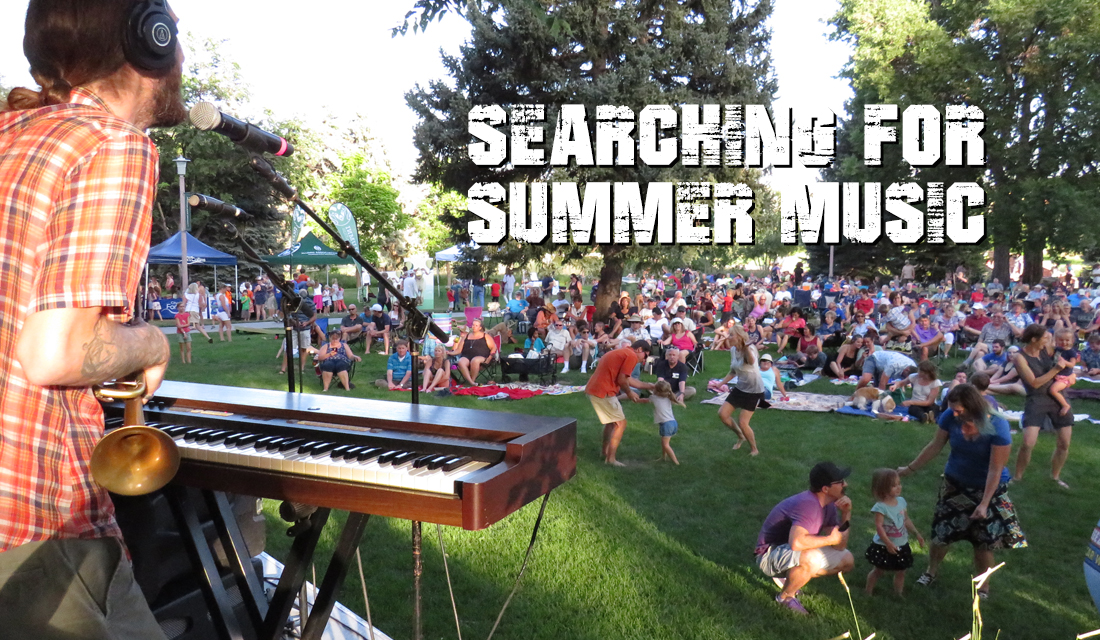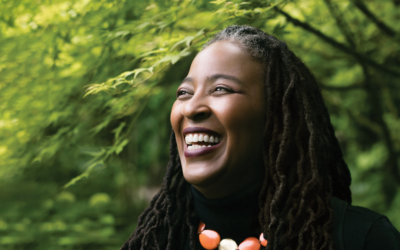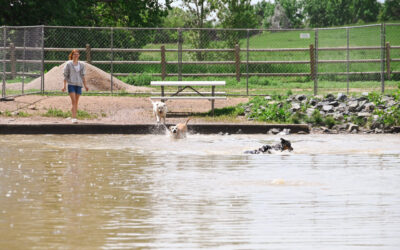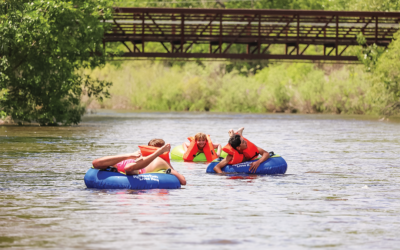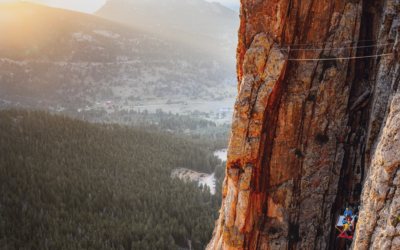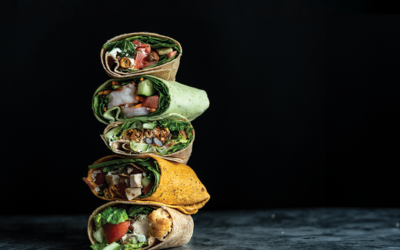What happens to live music during a pandemic?
The decision didn’t take much thought, to the point where someone else probably would have made it for her had she decided to continue the summer concerts that helped revitalize downtown Greeley into a hip, thriving place to spend a night on the town. Still, it hurt, given the time she invested and the enjoyment she got in putting together a lineup.
“That’s my baby,” says Hamling, the director of experience (she prefers to call it fun) for the Downtown Development Association.
Even so, Hamling respects the reason behind the decision. It nearly killed her. Hamling was in the hospital with pneumonia before “coronavirus” rolled off our tongues like popcorn butter from our incessant use. It was the sickest she’d ever been, even with her long, solid gray hair and adult daughters.
“It’s the only time I’ve ever been hospitalized for something other than having babies and a hysterectomy,” Hamling says.
Her doctor diagnosed her weeks aftershe was released and more information about COVID-19 spread like the virus itself. She still has fears about getting it again. So, avoiding a second wave “pales When Alison Hamling decided to postpone Friday Fest, she had a good cry.Searching FORSummer MUSICin comparison” to the need for music on a Friday night.
That doesn’t mean she has to like it.
And that describes our Coloradosummer music plans in a nutshell: There aren’t many, at least in terms of live music.
“I still have work on the calendar,” says Colin Bricker, whose studio, Mighty Fine Productions, does the sound for the many live festivals and concerts that gave Colorado as much of an identity as its mountains and breweries.
“But I find it hard to imagine [anyone is going to] pull off any live music this summer. There’s just no way to do that. Even if, somehow, we could do it, a lot of the festivals I do are pretty slim margins for the presenters. They’re doing it more out of a labor of love. So even if they are down, say, 25 percent, that could kill it. Most people are taking a year off and hoping to do it next year.”
If you’re willing to accept different definitions of what is “live” music, well, then your summer season could be salvaged. We will get into that later. And some venues known for live summer music are trying to figure out ways to make it work, even as they postpone their big lineups. But here’s the edit to this story: Cheyenne Frontier Days in Wyoming seemed to be the only major summer music festival in our area that hadn’t canceled at press time.
Bye, bye Miss American Pie.
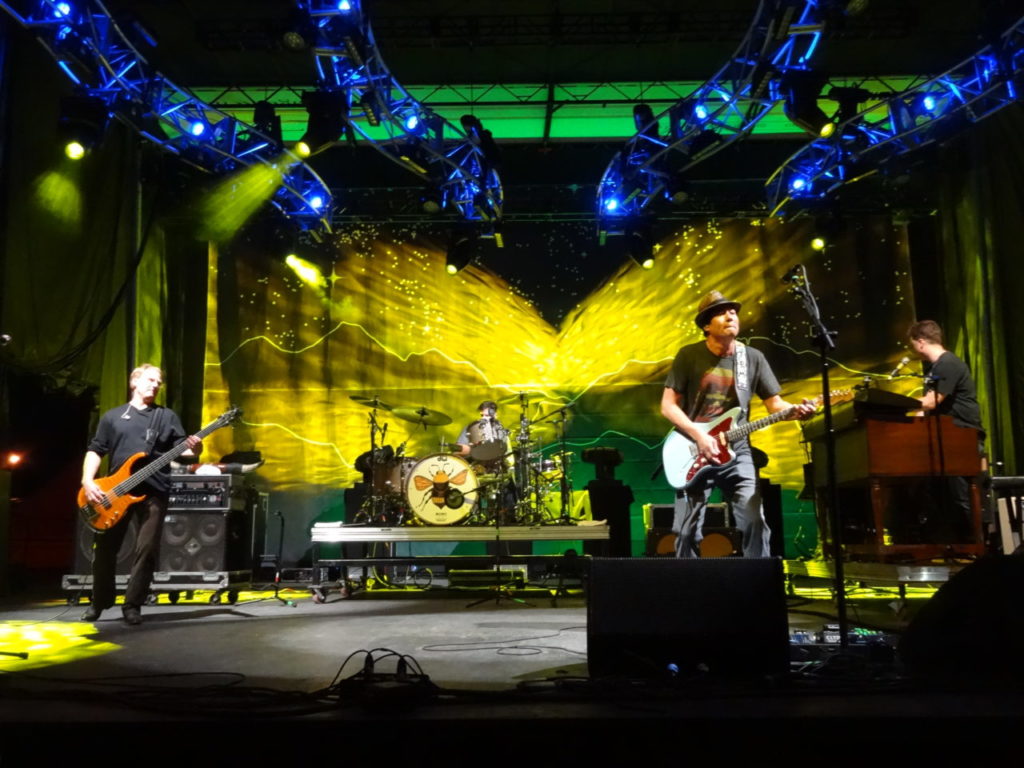
Cruel Summer
The festival cancelation list in Northern Colorado alone reads like a parent’s confession to their children that they lied about every cool magical thing in the universe. What do you mean there’s no Great Pumpkin, or Easter Bunny, or—gasp—Santa Claus?
What do you mean there’s no Greeley Blues Jam, or Bohemian Nights, or—gasp—Greeley Stampede?
“The decision by the Greeley Blues Jam committee was not an easy one to make,” in the Jam’s press release that reads like every other press release on this topic, “but the safety and health of our guests, volunteers and staff are priority.”
Announcements that the Jam or theStampede are just “postponed” removes the sting as effectively as that foul-smelling antiseptic your mom sprayed on your knee after you scraped it bike-riding. That means the Jam, just like Mishawaka, will host the same lineups next year, and it means big celebrations, such as the Stampede’s 100th event, will be delayed.
It also means the organizations are doing their best to offer consolation prizes. The Stampede should be able to put on a big fireworks display on the 4th of July, one even bigger than normal, says the general manager, Justin Watada. “We’ve already got good support from our sponsors to help with that one,” Watada says.
The Stampede also plans to put onthree virtual rodeos sanctioned by the Professional Rodeo Cowboy Association in September. The rodeos will be broadcast nationwide through the Cowboy Channel network. Watada says he doesn’t know if the competition will be as strong, although 140 separate rodeos were postponed as a result of COVID-19 so far this year, so they may want to compete even if the Stampede’s purse won’t have its usual heft. Watada does hope it can be an event beyond virtual.
“As larger groups gather, maybe this can be more of a community rodeo, and we can let people in the stands,” he says.
The Stampede’s music lineup will change, Watada says, and the Stampede is offering refunds now as a result. “We’ve already made two offers for 2021 now,” he says.
The Blues Jam is also offering refunds or the option to carry over the tickets to 2021 or donate the cost to the organization.
The unknowns moved the BohemianFoundation to cancel its NewWestFest, even though the popular three-day festival takes place in August, says Greist, Bohemian Foundation’s communications director. The festival will be back August 13-15, 2021. The festival will schedule a new lineup for that show.
“We remain committed to sharing the gift of live music with the community,” Greist says in an email. “Because this community festival takes months to plan and hundreds of people to coordinate, we made this difficult choice based on the information we have now.”
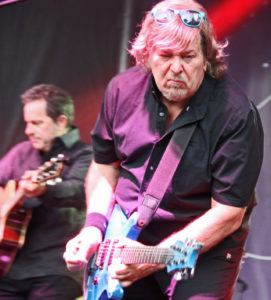
Scene Dreams
Dani Grant doesn’t feel lucky. The Mishawaka, the legendary Poudre Canyon establishment she owns with her husband, Matt Hoeven, and her other businesses, the bowling centers Chipper’s Lanes, are all down 70 percent, even with all the support she’s had from take-out orders.
“That’s unsustainable in the long term,” Grant says, “and we are concerned because ultimately we have to start working again to understand how long this dip will be.”
And yet, Grant does feel lucky. The Mish, as it’s affectionally called, has a large plot next to the Poudre River, where it puts on one of the more unique music series every summer.
“We have a lot of square footage, right?” Grant says. “I hope they will consider square footage and not just capacity. We definitely want to follow the rules: We don’t want people to get sick again, after all. We need them healthy. We don’t want to shut down again.”
She postponed most shows, such asSamantha Fish and the Jayhawks, to 2021. But if she gets clear guidelines, she is open to having a few tables outside, with maybe eight people at each table who she knows have been around each other, and maybe offer some live music.
“I would LOVE to do that with localmusicians,” Grant says, “just to have an opportunity for people to play. We will develop that plan as one of our scenarios.”
That’s the kind of creative thinking people are doing now to salvage the summer. The big music festivals can’t really compromise, but the smaller venues can take more of a wait-and-see approach.
“I’m thinking, optimistically, we can have music in July,” says Ely Corliss, owner of the Moxi Theater in downtown Greeley, who secured some government loans to keep him afloat for now, “and pessimistically by the end of 2020. No one really knows.”
City venues that offer entertainment, such as the Lincoln Center, the Rialto or the Union Colony Civic Center, have to follow guidelines but are hopeful for the fall.
“We’re not at any official decision points for the fall semester,” says Jason Everson, cultural affairs manager for the City of Greeley. “We are keeping in contact with other regional theaters. The city is monitoring and responding to the changing conditions of the evolving COVID-19 situation.”
How we react to the virus, after all, mutates rapidly, if you’ll accept that word. Friday Fest could occur by the end of the summer, at least for a couple shows.
“We have the advantage of using all local talent rather than national acts who have to travel and book far in advance,” Hamling wrote, “so we can be a little more flexible than the larger festivals.”
The tiny places, by comparison, caneven go week by week or make decisions every couple of weeks. Greeley’s two distilleries were experimenting even in early May: Syntax offered weekly drive-in comedy shows, where a comic told jokes while customers stayed in their car and listened to it on a short-wave radio broadcast. They even honked when they liked a joke. And Tower 56 warned that even though 50 percent capacity “would not be great,” the owner, Matt Estrin, wanted to continue with its jazz concerts every week with UNC students or local players as soon as he could.
“It was great for business,” Estrin says, “but more than that, it had become a part of our culture.”
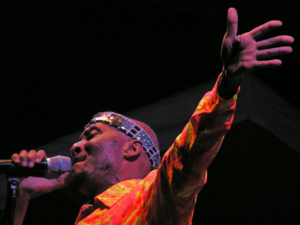
Dreaming About Streaming
The Greeley Blues Jam may be postponed, but it’s not dead, not this year. Pam Bricker, who organizes the event with her husband, Al, is pushing for live streaming for artists with several organizations and some funding to cover it. “I think that is our only hope for summer music,” she says.
These are preliminary thoughts, but the Brickers’ son is Colin, the studio owner, who is learning how to do digital work as a part of his business (and also by necessity, as most of his income comes from live shows). He produced the Five Points Jazz Festival on May 16. The idea, he says, was to condense the festival experience into a two-hour program.
The festival committee chose bands toplay, and Bricker produced recordings of the members playing the music in their homes. He produced eight seven-minute segments for the festival. The show ran on Rocky Mountain PBS that evening and included the ability to order food via GrubHub from food truck vendors and booths during segments featuring their cooking.
Bricker’s also using the isolation rooms in his studio to record individual band members and videoing them for live-streaming. He has a partnership with the jazz club Dazzle to stream every Thursday night.
“Everyone is learning a lot rightnow,” Bricker says. “I count myself in that. I think, honestly, more stuff like this will come up because it will just be a reality. People still want to reach audiences, and the artists still want to perform, and the audience still wants content. Everyone wants those experiences. We just need to change our expectations of what those experiences are.”
Well, as Han Solo said, that’s the trick, isn’t it? There’s still nothing that can replace being in the same place at the same time, Bricker says, so the same quality only seems to be achieved through the kind of studio work he’s done.
“The catch,” says Pam Bricker, who continues to explore options for the Blues Jam, “is how to pay for it. Can we get listeners to donate so that musicians and venues can make money? If it’s professional enough, I think that could happen. We have donated to many on Facebook, but I’m tired of poor audio and basement venues. That is not sustainable.”
Maybe not, but many artists and organizations have had success using those relatively primitive resources, at least for now.
Tim Coons, a musician who also worksas the outreach coordinator for the Weld Community Foundation, hosted a series of at-home concerts by musicians who played for a half hour to raise money for a relief fund for Weld County after he was inspired by his own good experience playing on Facebook Live.
Musicians such as Meat and Potatoesand Ben Pu were encouraged at the money they could make in a short time without the traveling incurred playing live. Ely Corliss was planning to take his popular May Play music festival online. Sarah Slaton, a Fort Collins musician, established a streaming live show, NoCo Live From Home Show, on Facebook that became an immediate hit and had the potential to do well beyond the pandemic. AEG Live and Live Nation showed serious interest in producing shows with music venues for summer streaming.
Slaton calls her effort “a side thing that’s now more of a thing thing.”
“The network keeps growing,” she says. “I think the audience is really forgiving. There’s a beautiful vulnerability to the sets. But it also sounds great, honestly. We are just trying to figure out ways to export the music in ways that honor social distance but still bring music—real, live music—to people.”
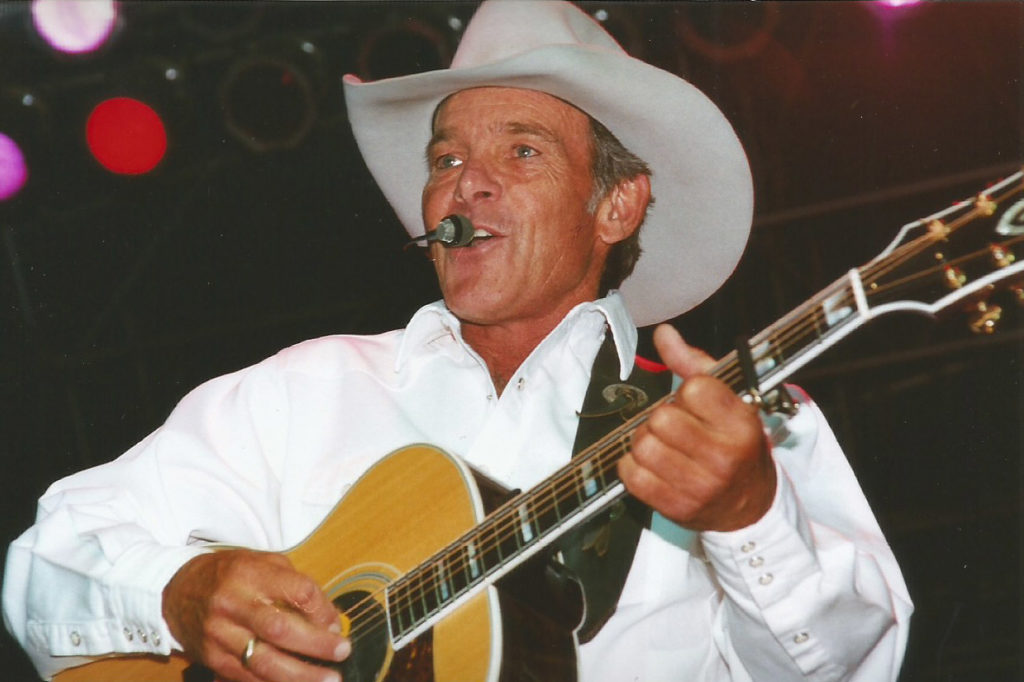
Keeping the Music Alive
by Angie Grenz
Downtown Loveland
Downtown Loveland is not ready to completely call off their One Sweet Summer music series. They have tentatively rescheduled several May and June dates for later in August and September, in the hopes that some gatherings are allowed by end of summer.
Downtown Loveland is also planning a special June 12 Night on the Town to celebrate the 15th anniversary of the program. They have hired Shadow Play Films to create a commemorative video featuring live performances by local musicians and interviews with local artists, including founder Billie Colson. For more details visit downtownloveland.org.
NoCo Live From Home Show
Change calls for innovation, and NoCo Live From Home Show was created to help give artists a new platform to perform. NoCo Live From Home features weekly livestream concerts featuring Northern Colorado artists. Created by musicians Sarah Slaton and Michael Kirkpatrick and sponsored by KGNU, Scene Magazine and School of Rock Fort Collins, the weekly showcase is live-streamed mainly on Saturdays. A donation of $5 is suggested to the performing artist. Visit facebook.com/pg/nocolivefromhomeshow for more information and past videos.
Drive in Concerts
The Holiday Twin Drive-In is figuring out how to keep the music alive. In addition to its sell-out movie nights, the drive-in will be hosting the Magic Beans, Kitchen Dwellers and Cycles music festival on June 26 and 27, from 5 p.m. to midnight. Social distancing will be in effect, but attendees can settle into their cars, or in chairs outside their cars, and enjoy live music. Headlining Friday night is Fort Collins’ own Great Salmon Famine and Saturday features Denver’s Envy Alo. Doors open at 4 p.m.
Word on the street is that other, similar concerts are in the works for the Holiday Twin as well. Keep tabs on their social media at facebook.com/holidaytwindrivein.
Music Lovers Time Capsule
Local journalist Tim Van Schmidt has taken advantage of the lockdown to chronical his career of music journalism by releasing his vault of musician interviews collected over the years. Some interviews were way back when cassette tape was the recording medium of choice. Van Schmidt has digitized the interviews and set them to a slide show with his own photos of the artist or vintage promo pictures. He has released the recordings on Youtube, including his 50th interview video with Yoko Ono in 1988.
The Youtube channel is called Time Capsules by Tim Van Schmidt and includes interviews with George Thorogood, Charles Neville and Henry Rollins, along with many, many others. This is a raw history of music icons at the height of their careers.


